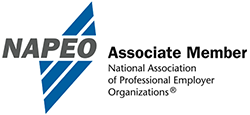Key Benefits of Partnering with a PEO for Employee Benefits Management
In today’s competitive business landscape, companies of all sizes seek ways to optimize their operations and improve employee satisfaction. One increasingly popular strategy is partnering with a Professional Employer Organization (PEO). PEOs offer a range of services, including comprehensive employee benefits management, that can provide significant advantages to businesses. This blog explores the key benefits of partnering with a PEO for managing employee benefits and how it can enhance your company’s overall performance.
Access to Comprehensive Employee Benefits
One of the most significant benefits of PEOs is their ability to provide access to a wide range of employee benefits. Small and medium-sized businesses often struggle to produce competitive benefits packages due to high costs and limited resources. However, PEOs pool the employees of multiple companies to form a larger employee group, which gives them greater negotiating power with benefits providers. This allows PEOs to offer comprehensive and affordable benefits packages, including health insurance, dental coverage, retirement plans, and more.
Cost Savings
Partnering with a PEO can lead to substantial cost savings for your business. By leveraging the collective bargaining power of a larger employee pool, PEOs can secure lower rates for health insurance and other benefits. Additionally, PEOs manage the administrative tasks associated with benefits management, reducing the need for an in-house HR team to handle these responsibilities. This can lead to lower overhead costs and more efficient use of resources.
Enhanced Employee Satisfaction and Retention
Offering a competitive benefits package is crucial for attracting and retaining top talent. Employees today expect more than just a paycheck; they want comprehensive benefits that support their health, well-being, and financial security. By partnering with a PEO, businesses can provide high-quality benefits that meet these expectations. This can increase employee satisfaction, morale, and retention rates, ultimately contributing to a more stable and productive workforce.
Compliance and Risk Management
Navigating the complexities of employee benefits regulations can be daunting for any business. Compliance with federal, state, and local laws is critical to avoid costly fines and legal issues. PEOs are experts in benefits compliance and stay up-to-date with the latest regulations. They ensure that your company’s benefits plans adhere to all applicable laws, reducing non-compliance risk.
Scalability and Flexibility
As your business grows, your employee benefits needs will evolve. PEOs offer scalable solutions that can adapt to your organization’s changing needs. Whether expanding your workforce, entering new markets, or introducing new benefit offerings, a PEO can provide the flexibility and support you need to manage these changes effectively. This scalability ensures that your benefits plans remain competitive and relevant as your business evolves.
Expertise and Support
PEOs bring a wealth of expertise to the table. Their teams of benefits specialists, HR professionals, and compliance experts are well-versed in the intricacies of employee benefits management. This expertise allows PEOs to provide valuable guidance and support to your business, helping you make informed decisions about your benefits strategy. Whether you need assistance with plan selection, employee communication, or regulatory compliance, a PEO can provide the expert support you need to succeed.
Improved Focus on Core Business Activities
By outsourcing employee benefits management to a PEO, your business can free up valuable time and resources that can be redirected toward core business activities. This improved focus allows them to concentrate on what they do best—growing your business, innovating, and serving your customers. With the administrative burden of benefits management lifted, your business can operate more efficiently and effectively.
Conclusion
Partnering with a PEO for employee benefits management offers various advantages to help your business thrive. From cost savings and compliance assurance to enhanced employee satisfaction and streamlined administrative processes, the benefits of PEOs are clear. As the business landscape evolves, partnering with a PEO can provide the flexibility and support to navigate these changes successfully.
If you are considering partnering with a PEO for your employee benefits management, take the time to research and select a reputable provider that aligns with your business needs and goals. The right PEO partnership can be a game-changer for your company, driving growth and success in the long term.
For more information on how partnering with a PEO can benefit your business, contact us at info@interproglobal.com to learn more about our comprehensive PEO services and how we can support your employee benefits management needs.






